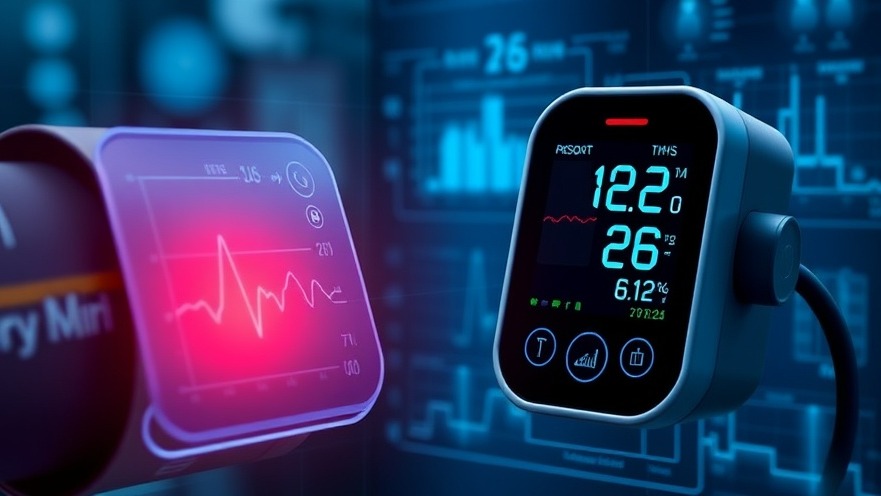
Revolutionizing Emergency Care Through Accurate Monitoring
The latest research from the Air Ambulance Charity Kent Surrey Sussex (KSS) demonstrates a transformative approach to pre-hospital care. Utilizing invasive arterial blood pressure monitoring could be a game-changer in treating patients with brain injuries. This innovative method offers enhanced precision, arguably vital for preventing further neurological damage.
Understanding the Importance of Accurate Blood Pressure Monitoring
Patients suffering from traumatic brain injuries or spontaneous intracranial hemorrhages require meticulous management of blood pressure. The traditional non-invasive technique, which employs a standard arm cuff, has been found to be flawed—it often underestimates high blood pressure while overestimating low blood pressure. This leads to potentially inadequate treatment decisions, which could aggravate a patient's condition during the critical initial response phase.
Insights from the KSS Study
Published in the Scandinavian Journal of Trauma, Resuscitation and Emergency Medicine, the KSS study titled "Diagnostic accuracy of pre-hospital invasive arterial blood pressure monitoring for hemodynamic management in traumatic brain injury and spontaneous intracranial hemorrhage" presents compelling evidence supporting the invasive method. In a controlled comparison, the arterial lines consistently demonstrated superior accuracy over the arm cuff methods. The precision gained from invasive monitoring points to a potential new standard of care in emergency medicine.
Enhancing Clinical Decision-Making
Jo Griggs, the Head of Research and Innovation at KSS, emphasized how the findings could change clinical practices. With more accurate readings, medical teams can make informed decisions regarding treatment strategies on-site. This translates into immediate adjustments in patient care tailored to the patient's specific hemodynamic state, enhancing chances of a positive outcome significantly.
The Broader Impact on Emergency Medicine
This study is a pivotal development in the realm of pre-hospital emergency medicine. KSS has long been at the forefront of advancing practices that could reshape how initial neurological emergencies are handled. Improving accuracy in measurements offers a dual benefit: better outcomes for patients in the field and a potential decrease in long-term healthcare costs associated with secondary complications from brain injuries.
Potential Challenges and Implementation
While the study reveals remarkable benefits of invasive blood pressure monitoring, its implementation poses challenges. Training paramedics and emergency responders to utilize this technology effectively will be crucial. Moreover, addressing communication issues between emergency teams and hospital staff regarding patient data is vital to ensure seamless transitions in care.
Future Opportunities and Trends in Emergency Care
The advancements in arterial blood pressure monitoring reflect broader trends in healthcare technology. As more healthcare practices shift towards utilizing data-driven solutions and real-time monitoring, the advent of telehealth and connected tools further support emergency care. Innovations like these could be pivotal for concierge health practitioners aiming to elevate their service delivery and patient outcomes.
Conclusion: A Call to Embrace Innovation
The findings from KSS underscore the need for progressive changes in emergency medicine practices. Concierge health practitioners should advocate for the integration of advanced monitoring systems like invasive arterial blood pressure tools into their protocols. By doing so, practitioners can play an active role in safeguarding the health of patients enduring critical situations.
Keep updated with the latest advancements in medical technology and stay prepared to offer the best care for your patients. By adopting new techniques today, you can ensure you're not just responding to emergencies but preventing future complications effectively.
 Add Row
Add Row  Add
Add 






Write A Comment